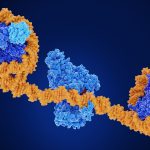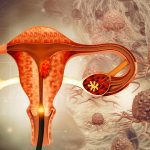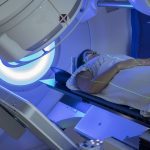Home Search
cancer - search results
If you're not happy with the results, please do another search
AI is being used to detect colon cancer in Lynch syndrome patients
Artificial Intelligence (AI) is now being used to check for colorectal cancer in people with Lynch syndrome, who are more likely to have a...
The University of Glasgow to receive £1.7m funding to explore the causes of cancer
Scientists are set to receive £1.7 million from Cancer Research UK to investigate the root causes of cancer and how to improve treatments.
Cancer is...
Understanding how epigenetics can improve cancer treatment
Researchers from the University of Barcelona have explained the role epigenetics can play in clinical cancer treatment.
In the early 1980s, methylation was discovered and...
NICE has recommended the anti-cancer drug Enhertu for earlier use
Hundreds more people are now eligible for the breast cancer drug Enhertu as NICE recommends for use in the disease’s early stages
This means NICE...
Defence’s novel Accutox intranasal reduces 50% of cancer nodules
Defence Therapeutics, a Canadian biopharmaceutical company specialising in the development of immune-oncology vaccines and drug delivery technologies, has just completed a pre-clinical study using...
New mRNA cancer vaccine significantly reduces disease
An mRNA cancer vaccine, developed by Moderna and Merck, demonstrated a statistically significant and clinically meaningful reduction in risk of disease recurrence or death.
The...
Researchers identify three new subtypes of brain cancer
Three new subtypes of brain cancer have been discovered by researchers from RCSI University of Medicine and Health Sciences in Dublin.
The new subtypes of...
Defence Therapeutics to begin phase 1 trial for new anti-cancer treatment
Defence Therapeutics Inc., a Canadian biopharmaceutical company specialising in the development of immune-oncology vaccines and drug delivery technologies, is pleased to announce the successful...
NHS fast-tracks life-extending prostate cancer treatment
A life-extending prostate cancer treatment will be available on the NHS, benefitting around 9,000 men.
The NHS in England will become the first healthcare system...
High-precision medicine can improve treatment for ovarian cancer
An international team of researchers have found that high-precision medicines can be used in oncology, allowing for better treatment for ovarian cancer.
Mutations of BRCA1...
More ethnic diversity is needed in genomic cancer data
Two recent studies have highlighted the need for greater ethnic diversity in genomic prostate cancer data and accessible genetic testing.
Over 1.4 million men were...
New life-extending treatment recommended for rare gastroesophageal cancer
Around 3,000 people could be eligible for a new life-extending combination therapy to treat rare forms of gastroesophageal cancer.
Gastroesophageal cancer, also known as gastroesophageal...
Tumour matrix profiling can predict the severity of lung cancers
Researchers have identified molecular profiles of the surrounding matrix of common lung cancers, which could help indicate which patients are likely to develop aggressive...
NICE approve mobocertinib to treat aggressive lung cancer
Around 100 people will benefit from mobocertinib, a new treatment for rare and aggressive lung cancer after NICE published its final guidance on recommending...
Radiotherapy treatment can only stop cancer recurrence in the short-term
Radiotherapy treatment for breast cancer only reduces the risk of cancer returning for ten years, having no effect thereafter, according to research from the...
Improving access to cervical cancer treatment for women with HIV
According to the World Health Organisation (WHO), progress is being made in the provision of cervical cancer treatment for women with HIV across the...
Benign breast disease increases the risk of breast cancer
Women with benign breast disease are twice as likely to be diagnosed with breast cancer, according to research from Hospital del Mar in Barcelona.
The...
GP teams gain access to tests to speed up cancer diagnosis
The NHS has rolled out fast-track testing to speed up cancer diagnosis, which will help patients across England.
NHS England is expanding direct access to...
Scientists uncover variable voltages in breast cancer cells
New research from Imperial College London found variable voltages in the membranes of breast cancer cells, revealing clues about how they grow and spread.
A...
Regular exercise can reduce the risk of metastatic cancer
Aerobic exercise can reduce the risk of metastatic cancer by 72%, according to a new study from Tel Aviv University.
According to the researchers, intense...





















